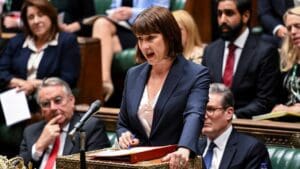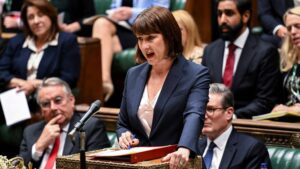
Rachel Reeves faces £25bn tax hike to avoid austerity, says IFS

Rachel Reeves, the Chancellor, is expected to introduce a £25 billion tax increase in this month’s budget to avoid plunging Britain back into austerity, according to the Institute for Fiscal Studies (IFS).
The IFS has warned that the tax rises will need to be twice as large as those introduced by George Osborne in 2010 to ensure public spending can rise as promised, even with looser fiscal rules.
Reeves is said to be exploring an increase in employer national insurance contributions as a key option, after Sir Keir Starmer declined to rule out the move. Labour’s manifesto pledge to avoid raising taxes on “working people” does not cover employer contributions, and a 1% increase could generate an estimated £8.9 billion. Labour is also considering measures such as adding VAT to private school fees and imposing a tougher levy on oil and gas companies, but the IFS cautions that these measures alone will not raise enough to protect public services from further cuts.
The IFS estimates that even if Labour’s proposed tax reforms generate £9 billion, an additional £16 billion in tax rises would be required to ensure departmental budgets grow in line with national income, making a total tax increase of £25 billion necessary. This would exceed the tax hikes imposed by both Gordon Brown in 1997 and Osborne in 2010.
Paul Johnson, director of the IFS, said, “The first budget of this new administration could be the most consequential since at least 2010. The new chancellor is committed to increasing investment spending, and to funding public services. To do so, she will need to increase taxes, or borrowing, or both.”
Reeves is also reportedly exploring changes to pensions, such as reducing the tax-free lump sum people can take out at retirement from £268,275 to £100,000, and adjusting rules around pension pots passed on after death.
The IFS predicts that even with optimistic economic forecasts, significant tax increases are needed to balance the books, especially as welfare costs rise due to an ageing population and growing debt interest payments. A Treasury spokesperson said the government is focused on making the UK’s economy more pro-growth despite the challenges.
Read more:
Rachel Reeves faces £25bn tax hike to avoid austerity, says IFS
